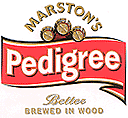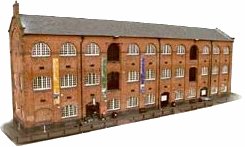| |
Let's Celebrate Britain's national drink
by Willard Clarke, 01/05
I was flicking disconsolately through the television channels one evening looking for a programme that wasn't a repeat or an insult to the intelligence when I came across a satellite channel called Wine TV.
I watched, in awed fascination, an hour-long examination of the wines from Burgundy. It was beautifully made, with sublime camera work tracking over the green hills of the region dappled by vineyards. |
|

|
One section showed wooden casks being built by craftsmen, with rough, unfinished casks held over blazing fires to toast the wood. Experts spoke eloquently about the importance of wood to the character of the finished wine.
Other knowledgeable people took the viewer through the different grape varieties grown in the region. They described the different characteristics of the various grapes, how to monitor their development on the vines
and the best time to pick them in order to extract the maximum quality of juice.
The next time I sip a glass of Burgundy I will appreciate it all the more thanks to the information I gleaned from Wine TV. I'm now hooked on the channel and have watched further programmes about other regions of
France and the New World wines of Australia.
There is a negative side to watching Wine TV, though. The programmes are exceptionally well made and highly professional. They show that wine has history and tradition, and that
enormous skill goes into making quality wines.

|
|
But the same holds true of beer. The image of firing fresh oak casks struck a chord. I opened Michael Jackson's fine book the Beer Companion and there on page 82 is an almost identical photo of an
oak cask being prepared for Marston's "union rooms" in Burton-on-Trent where Pedigree Bitter is fermented.
There is no shortage of experts who could talk as eloquently as the wine people of Burgundy about ageing beer in wood and the aromas and flavours generated by different varieties of malt and hops. |
Historians could show how growing grain in the Old World of Egypt and Mesopotamia turned people from wandering nomads into settled communities where they made beer and bread. Others could trace the
fascinating history of the hop plant and how its use was fiercely resisted for centuries in Britain as both brewers and drinkers preferred unhopped ale.
Wine TV is sponsored. At the end of the programme about Burgundy, a long list of wine producers scrolled across the screen. Does that mean the show is less than objective? Perhaps. I doubt there will be
many programmes on the channel showing cheap, sweet wines being made in steel tanks on an industrial site in Italy.
Of course, the wine industry wants to show its best face. That goes with the territory and the sponsorship. But I would settle for sponsorship if the brewing industry put its united and concerted effort behind a
similar promotion for beer, with all its rich history and tradition.
Beer TV may not be possible in the short term. What could and should be considered is a major museum and exhibition detailing the history, the diversity and fascination of beer. Most major brewing countries have
brewery museums. The original Heineken brewery in Amsterdam is now a museum that attracts large numbers of people. The same is true of the original Carlsberg brewery in Copenhagen.
Pilsen in the Czech Republic, where the first golden Pilsner lager was brewed, has a museum. In the same country, Budweiser Budvar will shortly open a museum in its home town of Ceske Budejovice.
In Britain the only museum of note is the former Bass Museum in Burton-on-Trent. It is excellent and is sited in a town that has played a central role in brewing in
Britain for centuries.
But Burton is not easy to get to
and there are continuing rumours that Coors, the current owners of the site, are concerned by the costs of the museum. |
|

|
London is the obvious place for a major beer exhibition. Wine has one, Vinopolis, near London Bridge. Vinopolis is close to the former Hop Exchange, where London brewers once bought their hops.
Beer should not play second fiddle to wine in Britain. It's time the industry put some time, effort, money and pride into assembling a celebration of our national drink.
|
|